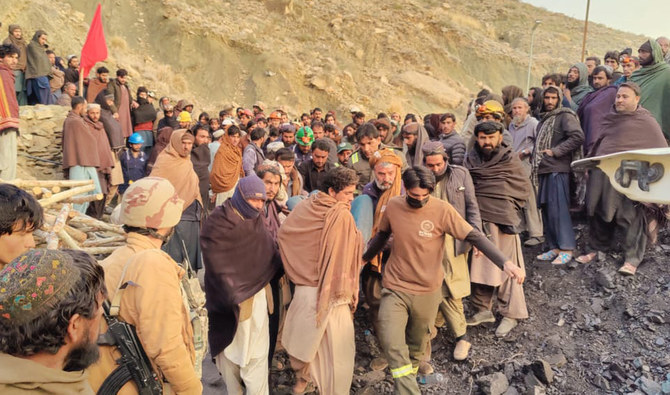Another wave of sorrow has struck Shangla as a coal mine operated by the Balochistan United Mineral Company collapsed following a poisonous gas explosion.
The incident occurred in Quetta’s Sijandi area on Thursday night, trapping 12 miners, all hailing from Shangla. Rescue teams have so far recovered one charred body, while operations continue to retrieve the remaining 11 miners who remain buried under the debris.
According to details, the mine exploded due to the accumulation of toxic gases, causing a catastrophic collapse. Rescue operations began immediately after the incident, but the absence of heavy machinery hindered progress throughout the night.
By Friday morning, heavy equipment was brought in, intensifying efforts to recover the trapped miners. The first body to be recovered was identified as Umar Wali, son of Ghulam Habib, a resident of Tangow. The company has released a list of the trapped miners, which includes: Roshan Zeb, son of Bakht Zameen, Izharuddin, son of Syedan Gul (residents of Banda Pir Abad), Muhammad Malik, son of Maizir, Amanullah, son of Muhammad Sultan, Noman, son of Aziz Bahar (residents of Banda Mian Khel, Pir Abad, Waheed Zaman and Nizamuddin, sons of Muhammad Yousuf, Muhammad Shafi, son of Hamish Gul (residents of Rahimabad), Umar Wali, son of Ghulam Habib (resident of Tango, Akbarullah (resident of Zara, Luqman (resident of Madain, Khwazakhela, One miner, a local resident of Quetta.
Shangla, tragically known for its coal miners, has 79% of its population working in the coal mining sector due to the lack of alternative livelihoods. Unfortunately, safety protocols and regulations are often ignored in these mines, leading to frequent accidents that disproportionately affect Shangla’s impoverished laborers.
This incident underscores the ongoing failure of authorities to enforce safety measures in coal mines, leaving workers vulnerable to such disasters.
Despite the large-scale operations of the coal mining industry, government efforts to regulate the sector and hold companies accountable remain insufficient.
Consequently, the lives of workers continue to be at risk, with tragedies like this becoming all too common.


